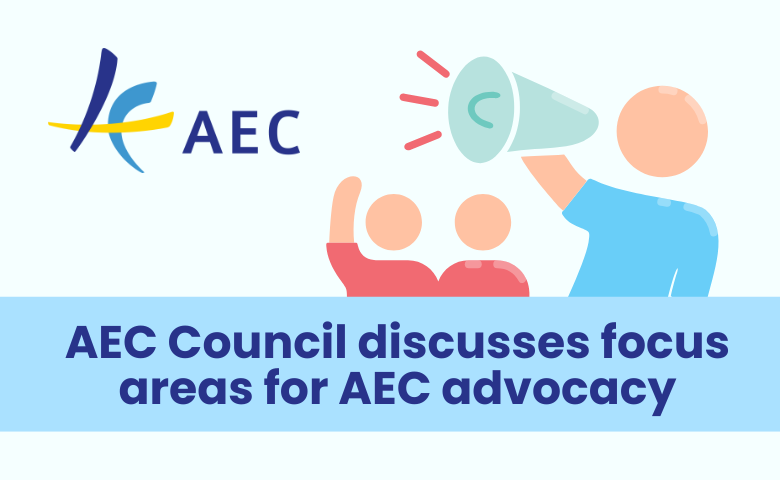The ARTEMIS project’s contribution to the development of the AEC’s advocacy work consisted of the development of an actual strategy in the field, followed by a toolkit to guide the AEC and its members’ concrete efforts. At the AEC Council meeting on 19 and 20 March, the toolkit was used for the first time as a basis for the AEC’s own messages, and this news update will therefore focus on how the AEC can reinforce the communication of its key issues in the future.
With increasing international political tensions and their potential economic and legislative impacts on the education sector, it is crucial to reassess our strategic priorities and risk outlook. To ensure that AEC can effectively advocate on behalf of its membership, we need a clear understanding of the key challenges and opportunities anticipated by the Higher Music Education Institutions in the coming years.
Prior to the Council meeting, the AEC therefore issued a short survey to identify trends in funding, student demographics, staffing, recruitment and regulatory changes. The result was presented at the AEC Council meeting contributing to the discussion of selecting and prioritising key messages in the advocacy work.
The institutions generally agreed that the coming years will be challenging in two areas, namely funding and staff recruitment, both academic and administrative. The expectation for student enrollment is the overall status quo, although with an expectation of further growth among international students. There is also a general concern that changes in national legislation in particular will disadvantage artistic education, although the survey does not provide further details.
In parallel with these challenges, the Council discussed a wide range of other possible advocacy areas.
Following a workshop with group work, which provided an opportunity for more in-depth discussions, the Council suggested the following areas and messages to be at the heart of AEC’s advocacy work in the coming period:
- Access to music education at the primary and secondary level
- Access to and stability of funding
- Advocacy for the rights of artists in an ever-changing technical landscape
- Student advocacy and empowerment
While these areas will receive special attention, AEC will of course continue to advocate for topics central to European cultural and educational policy in collaboration with our partners, such as the frameworks Creative Europe, Horizon and Erasmus+. Also, Artistic Research and the reintroduction of the STEAM (Artistic education integrated in Science, Technology, Engineering and Mathematics) approach to European educational policy will continue to belong to the permanent topics of AEC advocacy.
The output from the discussion, including the key messages, will form the basis of a slightly revised advocacy strategy as well as a new communication strategy for the AEC.






